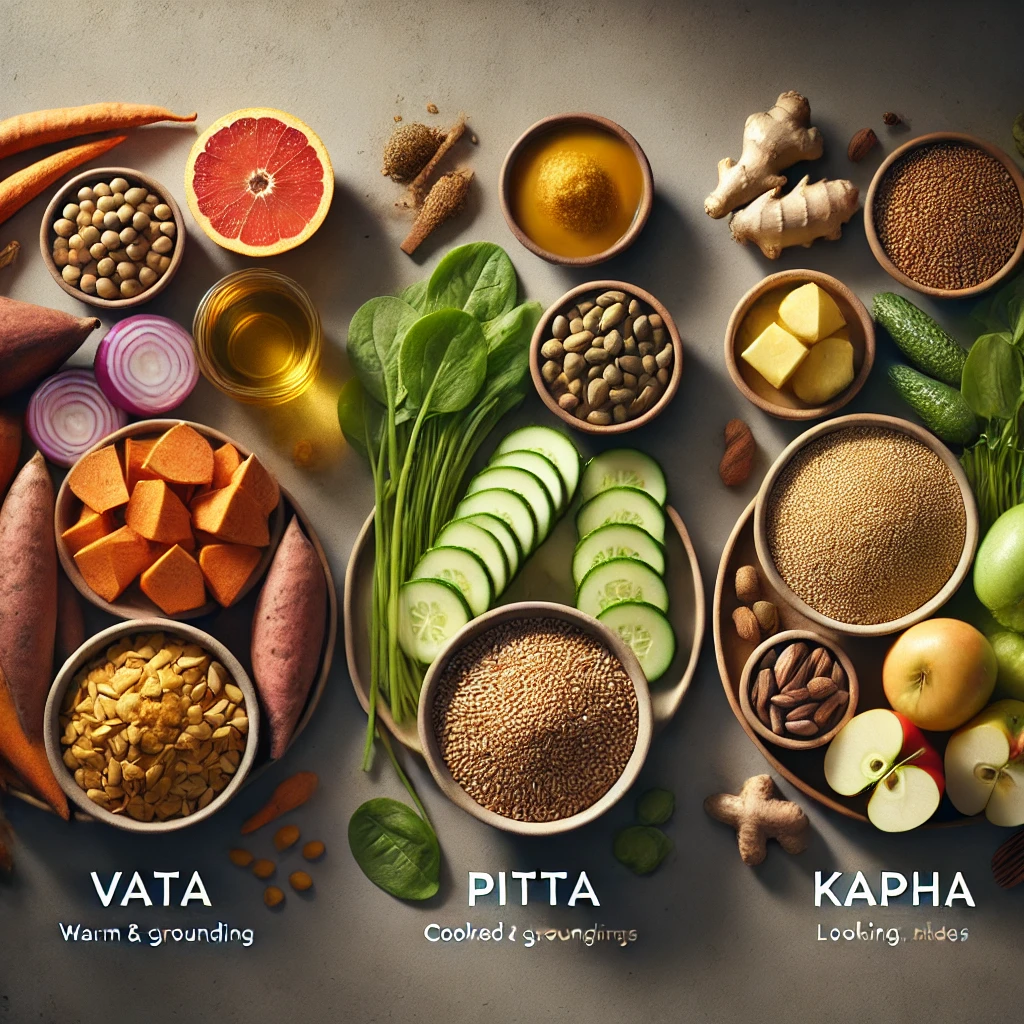Ayurveda, an ancient system of natural healing, provides a holistic approach to health that goes beyond simply eating nutritious foods. Ignoring Ayurvedic principles in your diet means missing out on personalized nutrition, natural detoxification, and the balance needed for optimal well-being. Here are five critical ways that not using Ayurveda in your daily diet could be harming your health:
1. Digestive Problems, Bloating, and Weak Agni
In Ayurveda, digestion is viewed as the cornerstone of good health, governed by what is known as Agni, or digestive fire. Agni is responsible for breaking down food, absorbing nutrients, and eliminating waste. When Agni is balanced, the body functions efficiently; when it is weak, the entire system suffers. Ignoring Ayurvedic dietary practices—such as consuming warm, cooked foods, using digestive spices, and eating in a calm environment—can weaken Agni, leading to a host of digestive problems.

Modern diets often involve irregular eating habits, excessive consumption of cold and raw foods, and lack of mindful eating, all of which can disrupt Agni. A weakened Agni fails to digest food properly, resulting in the buildup of undigested food and toxins known as Ama. Ama is considered the root cause of many diseases in Ayurveda, manifesting as symptoms like bloating, gas, indigestion, and fatigue. Over time, this toxic buildup can contribute to chronic conditions, compromising your overall health and vitality.
Ignoring the importance of Agni means missing out on a fundamental aspect of health management that helps ensure your digestive system operates optimally. Incorporating Ayurvedic practices can strengthen your digestive fire, improve nutrient absorption, and enhance your overall well-being.
2. Toxin Accumulation and Poor Detoxification
Ayurveda emphasizes regular, gentle detoxification as a key component of maintaining health. Unlike extreme detox diets that can shock the body, Ayurvedic detoxification methods are designed to support the body’s natural cleansing processes without causing harm. Daily practices like oil pulling, tongue scraping, and consuming Triphala help remove toxins and keep the body’s internal environment clean and balanced.

When you ignore these Ayurvedic detox methods, toxins (Ama) can accumulate in the body due to poor dietary choices, environmental pollutants, and stress. This accumulation of toxins often manifests as persistent fatigue, dull skin, poor digestion, and a general sense of sluggishness. Over time, the buildup of Ama can lead to more serious health problems, including chronic inflammation, autoimmune disorders, and metabolic issues.
Ayurvedic detoxification supports the liver, kidneys, and digestive system, enhancing the body’s ability to eliminate waste products efficiently. By not integrating these practices into your daily routine, you are allowing toxins to accumulate, undermining your health and leaving you vulnerable to disease.
3. Imbalance in Doshas Leading to Health Issues
Ayurveda teaches that each person has a unique balance of the three Doshas—Vata, Pitta, and Kapha—which influence their physical, mental, and emotional health. Maintaining this balance is essential for optimal health, and an Ayurvedic diet tailored to your specific Dosha can help keep these energies in harmony. When these Doshas are out of balance, it can lead to various health issues that affect your daily life.

- Vata Imbalance: Vata governs movement and communication in the body. When out of balance, it can cause anxiety, dry skin, joint pain, and irregular digestion. This imbalance is often aggravated by cold, raw foods, irregular eating schedules, and excessive stimulants like caffeine.
- Pitta Imbalance: Pitta is associated with metabolism, heat, and digestion. An imbalance can result in inflammation, heartburn, irritability, and skin issues such as rashes and acne. Spicy, oily, and acidic foods can further disturb Pitta, exacerbating these symptoms.
- Kapha Imbalance: Kapha controls structure, stability, and lubrication in the body. When Kapha is imbalanced, it can lead to weight gain, respiratory issues, sluggish digestion, and a feeling of heaviness or lethargy. Consuming too many sweet, heavy, or fatty foods can aggravate Kapha, worsening these conditions.
By not addressing Dosha imbalances through diet and lifestyle changes, you risk exacerbating these health problems, which can become chronic if left unchecked. Ayurveda offers specific dietary guidelines, lifestyle adjustments, and herbal recommendations to balance each Dosha, helping you achieve a state of equilibrium that modern diets often overlook.
4. Weakened Immunity and Increased Vulnerability to Illness
Ayurveda’s approach to boosting immunity involves nurturing the body’s internal defense mechanisms through diet, lifestyle, and herbal remedies. Key to this approach is the concept of Ojas, which represents the essence of vitality, immunity, and overall well-being. Ojas is strengthened by a balanced diet rich in nourishing foods, proper digestion, and mental peace.
Ignoring Ayurvedic dietary principles means missing out on natural ways to enhance immunity. Spices and herbs such as turmeric, ginger, tulsi, and amla are renowned in Ayurveda for their immune-boosting properties. These natural ingredients not only help the body fight off pathogens but also reduce inflammation and support healthy digestion.
Without incorporating these Ayurvedic practices, you may experience frequent colds, infections, and a slower recovery from illness. Modern lifestyles, with their stress, poor diets, and lack of rest, can significantly weaken the immune system. Ayurveda’s holistic approach supports the immune system from within, providing resilience against daily health challenges that conventional diets fail to address.
5. Increased Stress, Mental Fatigue, and Poor Emotional Health
Ayurveda recognizes the deep connection between diet and mental health. Foods that are overly processed, high in sugar, or filled with artificial additives can negatively impact your mind, leading to increased stress, anxiety, and mental fatigue. In contrast, Ayurveda emphasizes the consumption of Sattvic foods—those that are pure, calming, and nourishing to both the body and mind.

Sattvic foods, such as fresh fruits, vegetables, whole grains, nuts, and seeds, are believed to promote mental clarity, reduce stress, and enhance emotional stability. Additionally, Ayurveda recommends practices like meditation, yoga, and pranayama (breathing exercises) to help maintain mental balance and reduce emotional disturbances.
By not incorporating these principles, you may experience heightened levels of stress, anxiety, and mood swings, all of which can impact your overall quality of life. Ayurveda’s focus on the mind-body connection offers a comprehensive approach to managing stress, improving concentration, and promoting emotional resilience—something that modern diets often neglect.
Don’t Ignore Ayurveda in Your Diet
Ignoring Ayurveda’s dietary and lifestyle principles can lead to a wide range of health issues that affect your daily life. From digestive problems and toxin buildup to weakened immunity and increased stress, the consequences are significant. Ayurveda doesn’t just treat symptoms—it addresses the root causes of these problems through a holistic, personalized approach that supports overall well-being.
Incorporate Ayurvedic practices like mindful eating, balancing your Doshas, and natural detoxification into your daily routine. By embracing the wisdom of Ayurveda, you can reclaim your health, enhance your vitality, and live a balanced life. Start your journey today and experience the profound impact of Ayurveda on your mind, body, and spirit.



